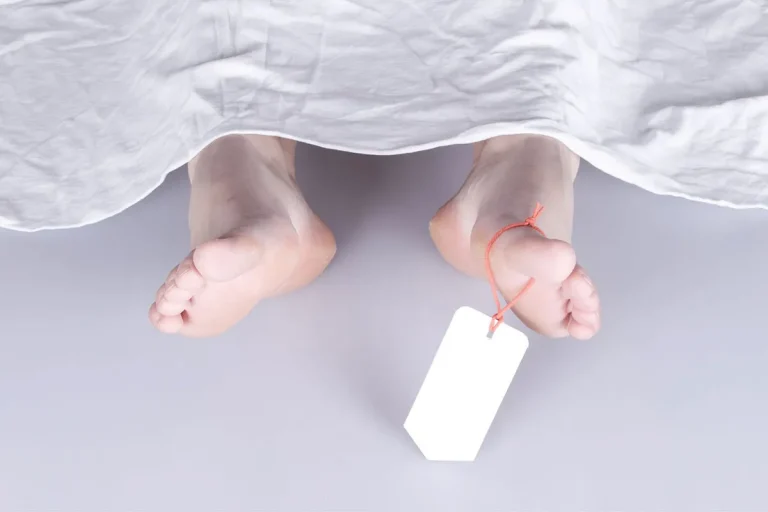Nail biting is a common habit that many people engage in, often without realizing it. But what does it mean spiritually when we chew our nails down to the quick? Surprisingly, there are deeper reasons behind this nervous tendency. If you’re looking for the spiritual meaning of nail biting, read on to learn why we bite our nails and what it might signify about inner anxieties or energy blockages.
If you’re short on time, here’s a quick answer to your question: Nail biting can represent a subconscious attempt to ease stress and emotional tension. It may also signal issues with communication, self-expression, or receiving nurturance.
Nail Biting as a Self-Soothing Mechanism
Have you ever wondered why some people have the habit of biting their nails? Nail biting, also known as onychophagia, is a common behavior that can be quite puzzling. However, there are several reasons why individuals engage in this habit, and one of them is as a self-soothing mechanism.
A Reflexive Response to Stress
Nail biting is often seen as a reflexive response to stress. When faced with a challenging situation or feeling overwhelmed, some people may instinctively resort to biting their nails as a way to cope. This action provides a momentary distraction from the stressor, allowing individuals to divert their attention and find a sense of relief. It becomes a subconscious habit that helps them self-soothe during moments of anxiety or tension.
Releasing Nervous Energy
Another reason why nail biting serves as a self-soothing mechanism is the release of nervous energy. Just like fidgeting or tapping one’s foot, nail biting can be a way to channel excess energy. It provides a physical outlet for nervousness, restlessness, or pent-up emotions. By engaging in this behavior, individuals may experience a temporary sense of relief and relaxation.
Seeking Oral Gratification
Nail biting can also be associated with seeking oral gratification. The act of biting nails may provide a form of oral stimulation and comfort. This could be especially true for individuals who have oral fixations or those who find satisfaction in repetitive behaviors. By biting their nails, they may find temporary pleasure or a soothing sensation that helps them feel more at ease.
It’s important to note that while nail biting can serve as a self-soothing mechanism, it can also have negative consequences. It can lead to nail infections, damage to the nail bed, and even dental issues. If you or someone you know struggles with nail biting, consider seeking professional help or trying techniques to address the underlying causes of stress or anxiety.
Communication Struggles and Nail Biting
Nail biting, also known as onychophagia, is a common habit that many people struggle with. While it may seem like a simple nervous tic, there are often deeper underlying reasons behind this behavior. One of the main factors contributing to nail biting is communication struggles.
Difficulty Expressing Oneself
Individuals who have difficulty expressing themselves verbally may turn to nail biting as a way to cope with their frustration. When words fail to convey their thoughts and emotions, this physical act provides a temporary release of tension. Nail biting becomes a substitute for verbal expression, allowing them to channel their inner frustrations into a physical action.
Have you ever found yourself biting your nails when you couldn’t find the right words to say? It’s a common experience for many people who struggle with communication. Nail biting can serve as a non-verbal form of communication, signaling to others that we are feeling anxious or overwhelmed.
Fear of Judgment from Others
Another reason behind nail biting is the fear of judgment from others. People who are self-conscious about their appearance or worried about what others may think of them may resort to nail biting as a way to cope with these insecurities. This behavior provides a temporary distraction and relief from the anxiety associated with social interaction.
Do you sometimes catch yourself biting your nails when you’re in a social setting? It’s not uncommon to see people resort to nail biting when they feel nervous or uncomfortable in social situations. By focusing on their nails, individuals can divert their attention away from their anxiety and shift it to a physical sensation. However, it’s important to note that this coping mechanism is temporary and may not address the root causes of their fear of judgment.
Problems Receiving Affection
For some individuals, nail biting may be linked to difficulties in receiving affection. People who have experienced past traumas or have a history of emotional neglect may find it challenging to accept love and affection from others. Nail biting can serve as a self-soothing mechanism, providing a sense of comfort and security in times of emotional distress.
Research has shown that roughly 20-30% of the adult population engages in nail biting behavior, with a higher prevalence among children and teenagers. It’s important to recognize that nail biting is not a habit that should be ignored, as it can have negative consequences for both physical and mental health. Seeking professional help, such as therapy or counseling, can be beneficial for individuals struggling with nail biting and the underlying emotional issues behind it.
For more information and support, you can visit reputable sites such as the Mayo Clinic or the Psychology Today.
Blocked Creativity and Indecisiveness
One of the spiritual reasons behind nail biting is the connection to blocked creativity and indecisiveness. When we bite our nails, it can be a sign that we are feeling frustrated or stuck in our creative pursuits. Nail biting can be a physical manifestation of the energy we are holding onto, preventing us from expressing ourselves fully. It is a way for our subconscious mind to release the pent-up energy and find temporary relief.
Stifled Self-Expression
Nail biting can be a reflection of stifled self-expression. It may indicate that we are holding back our true thoughts and feelings, afraid to speak up or express ourselves openly. This can stem from past experiences or societal expectations that have made us feel judged or criticized for our authentic selves. By biting our nails, we are unconsciously finding a way to release the tension and suppressed emotions.
Inability to Move Forward
Another reason behind nail biting is the inability to move forward in life. It can be a sign that we are feeling stuck or overwhelmed, unsure of how to take the next step. Nail biting becomes a coping mechanism to distract ourselves from the fear or uncertainty that comes with making important decisions or facing new challenges. It is a way for us to temporarily escape from the discomfort of moving forward.
Perfectionistic Tendencies
Perfectionism can also play a role in nail biting. Those who have perfectionistic tendencies often have high standards for themselves and fear making mistakes. Nail biting can be a way to release the pressure we put on ourselves to be perfect. It becomes a subconscious way to cope with the fear of failure or not meeting our own expectations.
Nutritional Causes of Nail Biting
Nail biting, also known as onychophagia, is a common habit that affects individuals of all ages. While it may seem like a harmless habit, it can have underlying causes, including nutritional deficiencies. In this section, we will explore how mineral deficiencies, poor diet, and the need for micronutrients can contribute to nail biting.
Mineral Deficiencies
Minerals play a crucial role in maintaining the health of our nails. Deficiencies in essential minerals such as calcium, iron, and zinc can lead to brittle and weak nails, making them more prone to breakage. When our bodies lack these important minerals, we may unconsciously resort to nail biting as a way to alleviate discomfort or relieve stress. If you suspect that your nail biting is related to a mineral deficiency, it is advisable to consult with a healthcare professional who can assess your nutrient levels and recommend appropriate supplements or dietary changes.
Poor Diet
A poor diet lacking in essential nutrients can also contribute to nail biting. Consuming a diet high in processed foods, sugary snacks, and unhealthy fats can deprive our bodies of the vitamins and minerals necessary for healthy nail growth. Additionally, a diet lacking in protein can lead to weak nails, as protein is crucial for the formation of keratin, the main component of nails. Incorporating a balanced diet rich in fruits, vegetables, lean proteins, and whole grains can help improve the health of your nails and reduce the urge to bite them.
Need for Micronutrients
In some cases, nail biting may be a result of a deficiency in specific micronutrients. For example, a lack of vitamin B-complex, which includes vitamins B12 and biotin, can lead to brittle nails and increase the likelihood of nail biting. These vitamins are vital for maintaining the overall health of our nails and promoting their growth. It is recommended to include foods such as eggs, fish, nuts, and leafy greens in your diet to ensure an adequate intake of these essential micronutrients.
Breaking the Nail Biting Habit
Do you find yourself biting your nails without even realizing it? Nail biting is a common habit that affects many people, and it can be a difficult habit to break. However, understanding the spiritual meaning and reasons behind nail biting can help you take the necessary steps to overcome it. Here are some strategies to help you break the nail biting habit:
Reduce Stress
One of the main reasons people bite their nails is due to stress. When we are feeling anxious or overwhelmed, nail biting can provide a temporary sense of relief. However, it is important to find healthier ways to manage stress. Did you know that deep breathing exercises and mindfulness techniques can help reduce stress? Taking a few minutes each day to focus on your breath and bring yourself into the present moment can work wonders for your overall well-being.
Try Fidget Toys
Another effective strategy to break the nail biting habit is to find an alternative outlet for your nervous energy. Fidget toys, such as stress balls or sensory rings, can provide a healthy distraction and keep your hands busy. Did you know that fidget toys can help improve focus and concentration? By channeling your restless energy into something more constructive, you can reduce the urge to bite your nails.
Get Manicures
Treating yourself to regular manicures can also help break the nail biting habit. By keeping your nails well-groomed and polished, you are less likely to want to ruin their appearance by biting them. Additionally, the attention and care that a manicurist gives to your nails can make you more conscious of their condition, reinforcing your determination to stop biting. Did you know that getting regular manicures can boost your self-confidence? Taking care of your nails can be a form of self-care and a way to show yourself some love.
Use Bitter Nail Polish
If other strategies haven’t worked for you, you can try using bitter nail polish specifically designed to deter nail biting. The bitter taste acts as a deterrent and helps break the habit. Over time, your brain will associate nail biting with an unpleasant taste, making it easier to resist the urge. Did you know that there are several brands of bitter nail polish available in the market? You can ask your local pharmacist or search online for options that may work for you.
Remember, breaking the nail biting habit takes time and patience. Be kind to yourself and celebrate small victories along the way. With determination and these strategies in place, you can overcome nail biting and promote healthier habits for your nails and overall well-being.
Conclusion
In the end, nail biting usually stems from deeper emotional issues in need of resolution. While nutritional factors can contribute, addressing stress, communication problems, and creativity blocks may be more effective. If you want to stop biting your nails, consider what unresolved tensions may lie underneath this nervous habit. With self-awareness and the right support, you can break free of nail biting for good.






